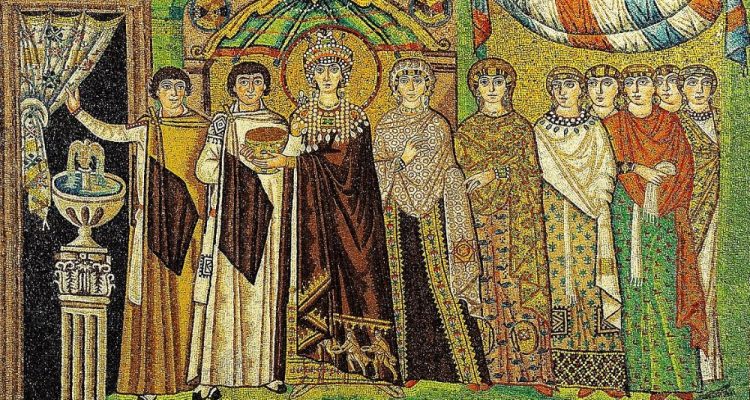Editor’s Note: Published on April 29, 2023 on WomensOrdination.org blog, The Table.
Sitting behind the cantor podium in a candlelit chapel adorned with poinsettia and pine, I was first struck by the power of a Roman Catholic woman preaching. The college community at my alma mater was not celebrating the mass, but rather our annual service of Lessons and Carols, typically held a week before students return home for Christmas. I listened to our campus minister’s interpretation of Advent readings I’d heard thousands of times before. But her position on the raised platform at the center of this worshiping community gave her words a potency I had yet to hear from that pulpit–from a woman.
I’d heard her speak boldly of God’s justice many times before in our one-on-one conversations, but now, she stood in a place I’d only ever seen a man stand. There was a deep reverence in that moment that I recall vividly, though the specific reflection has long since faded from my memory.
Juxtaposed with the sheer awe I felt that evening was an overwhelming feeling of frustration. Countless times since that Advent night, I have marveled in disbelief as the church continues to deny women the ability to preach, lead congregations, and celebrate the Eucharist solely on the basis of sex. There is a deep sadness in this exclusivity, particularly because those disadvantaged are not only faithful, talented women. Exclusion of women is a disservice to all Roman Catholics, everywhere. By denying ordination to the very people who have selflessly and lovingly raised the church since the time of Christ, our church fails to embody the selfless love of Christ. God’s people globally are wounded when we suppress those called to the priesthood simply because of their sex.
I channeled my frustration into research, endeavoring to unveil how the fallible–and exclusively male–church leadership intentionally erased feminine contributions to the early church and have deliberately excluded women from positions of power ever since. It was not difficult to find feminist scholars who had spent their careers faithfully arguing for the ordination of women in the Roman Catholic Church. I became engrossed with Eldon Jay Epp’s Junia: The First Woman Apostle, which makes the now broadly accepted argument that Junia (whose name was mistranslated in many iterations of Scripture as the male “Junias”) was, in fact, an apostle. Her very existence calls into question whether Christ and the apostles indeed intended that ordained ministry be reserved for men alone, as claimed by Pope Paul VI and Pope John Paul II in their respective writings Inter Insigniores (1976) and Ordinatio Sacerdotalis (1994).
I dove into more research than was likely required by my religious studies courses and presented my professor with what he called “an exquisite study in feminist theology.” This professor–a Catholic priest, theologian, and professor of religious studies at my Catholic college–told me that my research was his first introduction to many of these arguments for women’s ordination and recommended I publish my findings in a magazine with a largely ordained readership.
It took me half a decade to recognize that my attempt at scholarly arguments for women’s ordination may forever be futile. My position in the church as a young woman who has never considered ordained ministry for myself does not position me to argue against millennia of papal encyclicals and church tradition. But the more I witness the faiths of believers throughout the world, the more my heart grieves for my own church.
In my professional life, I’ve had the privilege of bearing witness to dozens of diverse religious practices and building relationships with religious leaders in traditions I didn’t know existed when I first heard a Catholic woman preach.
At a Chrism Mass at the Episcopal diocese where I now work, I was awe-struck again, staring at the young woman seated in the pew in front of me. We were alike in many ways–around the same age, similar stature and features–but she wore vestments. She is a priest, an identity that Roman Catholic women have been conditioned to not consider for ourselves. While participating with ease during this Episcopal mass (which is remarkably similar to the Roman Catholic mass), this young woman became a window through which I could envision a Roman Catholic Church that ordains those called to priesthood, regardless of their sex.
I turn with perhaps naïve hope to the Synod on Synodality. It is arguably the first time the Roman Catholic Church in its entirety has an opportunity to prayerfully consider women’s expanding role in ordained leadership in a context where the church clearly teaches that women and men are equally valuable images of God. In this process, Catholic leadership may continue to debate the historical role of women in the early church, the specific translations of women’s names, and the evidence Christ and the apostles give for or against the ordination of women.
However, I am proud to still be naïve enough to consider another path forward: Catholic leadership can boldly seek to realize the radical inclusivity that Jesus embodies in the Gospels. Church leaders can choose to uplift the potential of those who have been marginalized and outcast. If church leadership wishes to shape the church into what Jesus intended, it is past time to open the door of women’s ordination to the priesthood.
Mary Grace Puszka is a faith communications expert whose work has given her a window into the world of diverse faiths across the globe. She serves Episcopal Ministries of Long Island as communications manager. You can follow her on Twitter at @MGPuszka.

